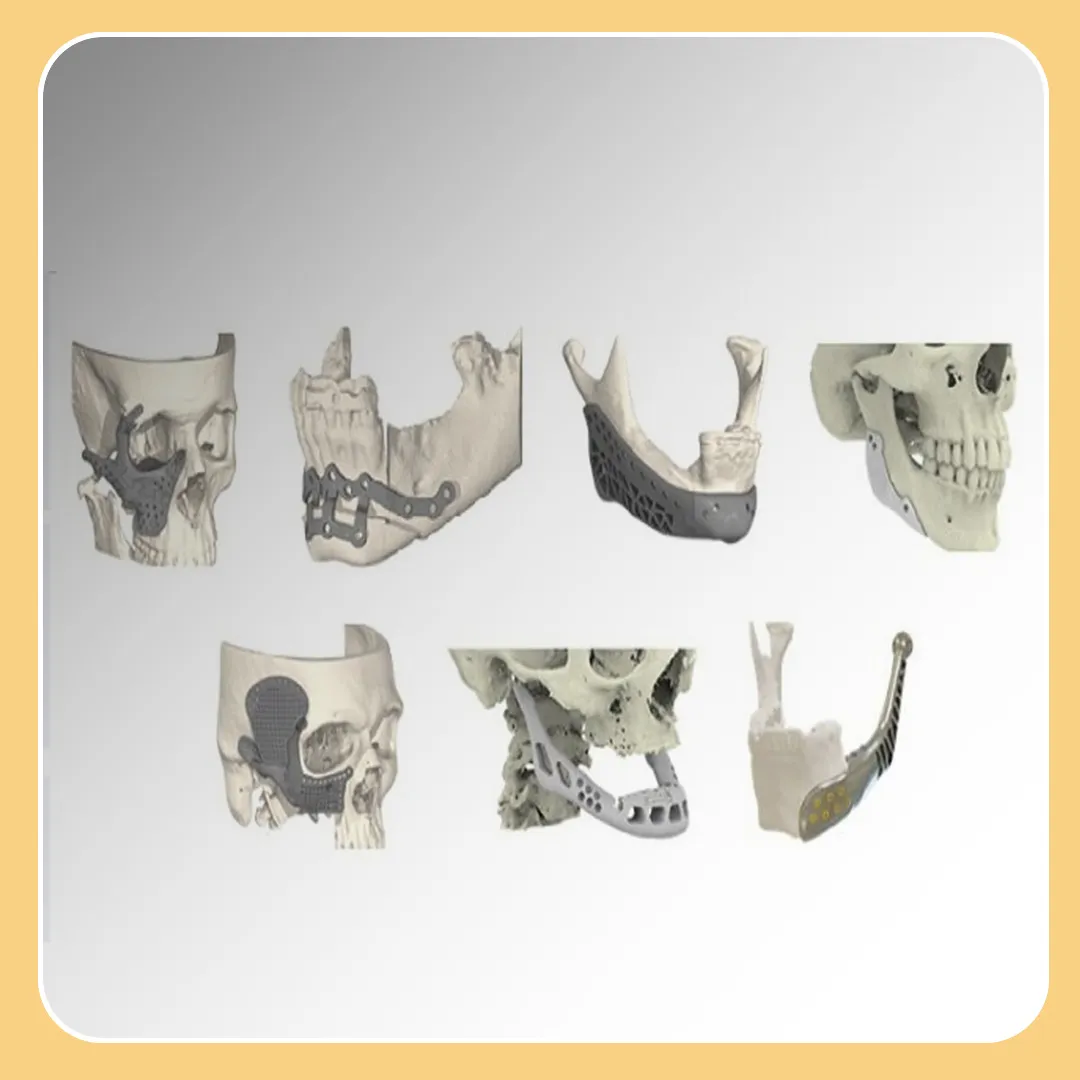A group of researchers from Sharif University of Technology has successfully developed a platform for designing and manufacturing custom-made titanium bone replacement implants.
According to ISNA on December 24, 2022, these implants are being manufactured for the first time in Iran by optimizing and standardizing all stages of the production process. They will be made available to patients, particularly in the fields of oral and maxillofacial surgery and orthopedics.
Custom-made implants are surgical devices designed and created for patients who cannot use standard implants due to anatomical differences, bone deformities, or specific injuries. Despite the rapid global advancement in custom-made implant applications in recent years, this technology has not yet been developed in Iran in a standardized and reliable manner. Most of the work done has been research-based and scattered, forcing patients to obtain these implants from abroad, often due to high costs.
The cost of purchasing a custom-made mandibular implant from abroad is approximately $6,000, while the cost of a custom-made prosthesis for hip and knee joints exceeds $10,000, making them significantly more expensive than non-custom implants.
According to the Sharif University of Technology’s public relations office, the “Development of a Custom-made Titanium Bone Replacement Implant Design and Manufacturing Platform” is a pioneering project in the country conducted by Sharif University researchers. This platform focuses on optimizing and standardizing all stages of the design and manufacturing process for custom titanium implants to provide a reliable, safe, and effective product, adhering to medical device guidelines.
Importance of the Custom-made Implant Platform
Dr. Farzam Farahmand, a faculty member at Sharif University’s Department of Mechanical Engineering and the project lead, stated that the key aspect of producing custom implants is that each product is uniquely designed and manufactured according to the specific characteristics of an individual patient. This approach differs from the standard industrial production model where products are standardized. Instead, the production process chain must be standardized.
The “Development of a Custom-made Titanium Bone Replacement Implant Design and Manufacturing Platform” project, which ran from April 2019 to September 2022 with support from the Vice Presidency for Science and Technology, has studied, modeled, analyzed, and tested all stages of designing, building, and completing titanium custom-made implants. The production process chain, including conceptual and detailed design, additive manufacturing using SLM (Selective Laser Melting), surface and thermal finishing, and final processes such as cleaning and sterilization, has been optimized, standardized, and documented. Periodic follow-ups and non-destructive quality control tests have been designed to ensure the safety and effectiveness of the product.
Dr. Farahmand added that clinical follow-up and modeling processes have been considered to leverage previous experiences in designing and building new implants. The developed platform can produce various types of custom-made titanium implants for patients in the country and region, ensuring the safety and efficacy of products according to international standards.
Application of Custom-made Titanium Implants
Dr. Farahmand highlighted that custom bone replacement implants have extensive applications in various types of surgery, particularly in oral and maxillofacial surgery and orthopedics. The developed platform is capable of designing and producing different types of implants, including joint and non-joint implants, cemented and non-cemented implants (direct implant-bone connection), solid and porous implants, and implants subjected to small, medium (such as bite force), and large (such as body weight) mechanical loads.
Dr. Farahmand concluded that the platform is currently commercially available on a limited basis, offering its services to selected surgeons and hospitals. Custom-made implants for partial and full mandibles, skulls, zygomatic and orbital floors, temporal regions, jaw angles, and femoral and tibial cones for knee joint replacement surgeries have been produced and used in 25 successful surgeries. With appropriate investment and increased production capacity, it is anticipated that this platform will be fully commercialized and meet the needs of patients across the country for various custom-made implants.

